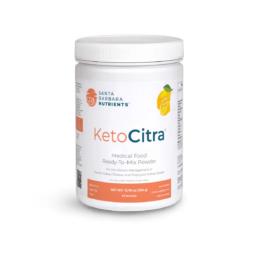We combed through multiple medical journals looking for the latest research on the Integrative approach to kidney health. We know your time is valuable, so we curated and summarized these studies for you. Welcome to the InKidney August Research and News.
Uric acid-lowering medications don’t prevent CKD
Uric acid is a waste metabolite produced from the breakdown of purines. Elevated serum uric acid levels are associated with a higher risk of hypertension, cardiovascular disease, and mortality and progression of chronic kidney disease (CKD).
This study was an observational retrospective evaluation aimed to examine the association between initiating uric acid–lowering therapy and the incidence of CKD. The study was published in June in JAMA Network Open.
269,651 patients with an estimated glomerular filtration rate of ≥60 mL/min/1.73 m2 and no albuminuria were assessed. These patients were treated at the US Department of Veterans Affairs health care facilities from 2004 to 2019.
There was no beneficial association between initiating uric acid–lowering therapy and the incidence of CKD. In fact, uric acid lowering–therapy was associated with a significantly higher risk of new-onset CKD.
Join us to end the kidney disease epidemic and receive the FREE Report “5 Pitfalls to Avoid When Caring for Kidney Patients”
Discontinuing fenofibrate decreases serum creatinine
This prospective observational small study evaluated patients who were referred to a nephrology clinic for a new evaluation of a rise in serum creatinine or worsening chronic kidney disease who were on fenofibrate.
Fenofibrate is an anti-lipidemic agent prescribed to lower high cholesterol and triglyceride levels.
Discontinuation of fenofibrate resulted in a sustained reduction in serum creatinine in about half of the patients and for up to 1 year. Median serum creatinine at the time of fenofibrate discontinuation was 1.9 mg/dL.
Upon discontinuation of fenofibrate, the median serum creatinine decreased to 1.5, 1.4, and 1.4 mg/dL at 3, 6, and 12 months respectively.
This study confirms previous reports that fenofibrate increases serum creatinine without causing kidney disease. This was thought to be due to an increase in the metabolic production of creatinine.
Music for kidney health
This featured article published in CJASN examined the health implications of music. The authors discussed the impact of music on the mind and body and its ability to help ease pain and fear.
According to the authors, in addition to conventional pharmacological treatment, music can play a complementary role as an affordable non-pharmacologic therapeutic tool to improve quality of life and potentially reduce morbidity and mortality in chronic kidney disease patients.
The authors cited several studies and discussed how music can potentially help with managing depression, anxiety, and pain, and improving the quality of life for kidney patients.
Join here to receive FREE monthly updates on the latest research in Integrative Nephrology and tips on managing kidney disease straight to your inbox.
We would love to hear your feedback. Let us know what you think of these educational materials and if you like us to focus on specific topics. Please email us at info@inkidney.com.



